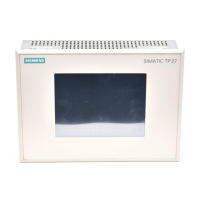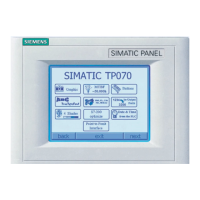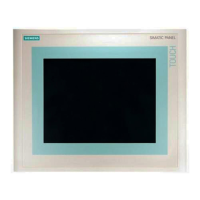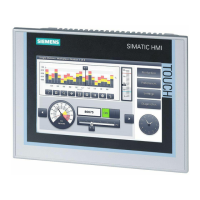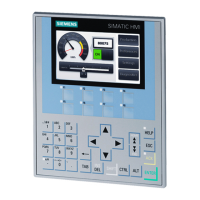Glossary
Comfort Panels
Operating Instructions, 08/2018, A5E36770603-AC
241
A recipe is a combination of tags that form a fixed data structure. The configured data
structure can be assigned data in the configuration software or on the HMI device and is
then referred to as a record. The use of recipes ensures that all data assigned to a data
record is transferred synchronously to the controller.
The runtime software is a process visualization software used to test a project on a
configuration PC.
A screen is a form of visualization for all logically related process data in a system. The
representation of the process data can be visually supported by graphic objects.
A screen object refers to objects such as rectangles, I/O fields or alarm views which are
configured for visualization or operation of the system.
General term referring to machines, processing centers, systems and processes which are
operated and monitored on an HMI device.
A system alarm is assigned to the "System" alarm class. A system alarm refers to internal
states on the HMI device and the controller.
The tab order defined in the course of project engineering determines the sequence for
activating objects by pressing the <TAB> key.
A tag is a defined memory location to which values can be written and from which values can
be read. This can be done from the controller or the HMI device. We distinguish between
external tags (process tags) and internal tags, depending on whether or not the tag is
interconnected with the controller.
Transfer of a runtime project from the configuration PC to the HMI device.
